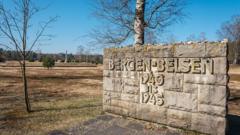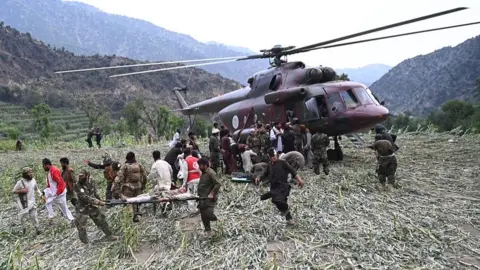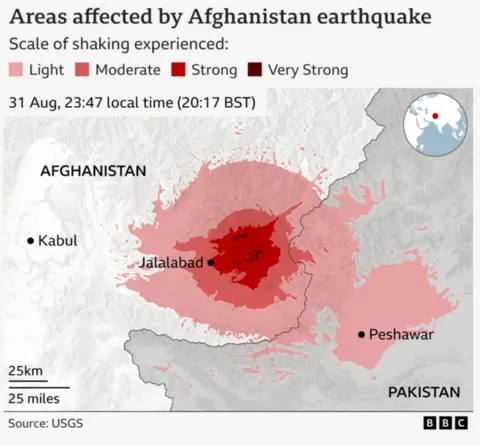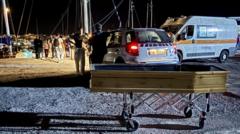On Sunday, the 80th anniversary of the liberation of the Bergen-Belsen concentration camp, more than a thousand survivors, families, and dignitaries came together to remember the unimaginable suffering endured by tens of thousands. British and Canadian troops entered the camp in April 1945, only to face a shocking scene of death and despair, with around 60,000 emaciated survivors and 13,000 unburied corpses.
Among the attendees was Mala Tribich, who, at age 14, witnessed the horror of Belsen and now, at 94, recalls the grotesque sights that haunt her memory. Another survivor, 11-year-old Esther Alice, shared a heart-wrenching account of losing her mother in the camp. Onlookers listened attentively as stories unfolded, revealing a chilling snapshot of a place she described as “a graveyard.”
Despite sunny weather, the atmosphere remained somber as speakers expressed the magnitude of the atrocity that unfolded there. British soldier Michael Bentine captured Belsen as “the ultimate blasphemy,” while journalist Richard Dimbleby, one of the first broadcasters to document the camp, labeled the day as the most horrible of his life.
Bergen-Belsen became notorious not only for its horrific conditions, exacerbated by overcrowding and disease, leading to 500 deaths daily, but also because it served as a reminder of the Holocaust’s stark reality. The Nazis’ cruelty was starkly visible in the camp's maintained barracks, where countless victims came to die, including the well-known diarist Anne Frank and her sister.
Sunday's event emphasized honoring the deceased while acknowledging the traumatic legacy of the camp. Attendees included 180 British Jews who participated in the commemoration, laying wreaths and reading prayers amidst a peaceful yet poignant landscape, marked by a few memorial stones that whisper the memories of those lost to tragedy.
Among the attendees was Mala Tribich, who, at age 14, witnessed the horror of Belsen and now, at 94, recalls the grotesque sights that haunt her memory. Another survivor, 11-year-old Esther Alice, shared a heart-wrenching account of losing her mother in the camp. Onlookers listened attentively as stories unfolded, revealing a chilling snapshot of a place she described as “a graveyard.”
Despite sunny weather, the atmosphere remained somber as speakers expressed the magnitude of the atrocity that unfolded there. British soldier Michael Bentine captured Belsen as “the ultimate blasphemy,” while journalist Richard Dimbleby, one of the first broadcasters to document the camp, labeled the day as the most horrible of his life.
Bergen-Belsen became notorious not only for its horrific conditions, exacerbated by overcrowding and disease, leading to 500 deaths daily, but also because it served as a reminder of the Holocaust’s stark reality. The Nazis’ cruelty was starkly visible in the camp's maintained barracks, where countless victims came to die, including the well-known diarist Anne Frank and her sister.
Sunday's event emphasized honoring the deceased while acknowledging the traumatic legacy of the camp. Attendees included 180 British Jews who participated in the commemoration, laying wreaths and reading prayers amidst a peaceful yet poignant landscape, marked by a few memorial stones that whisper the memories of those lost to tragedy.




















